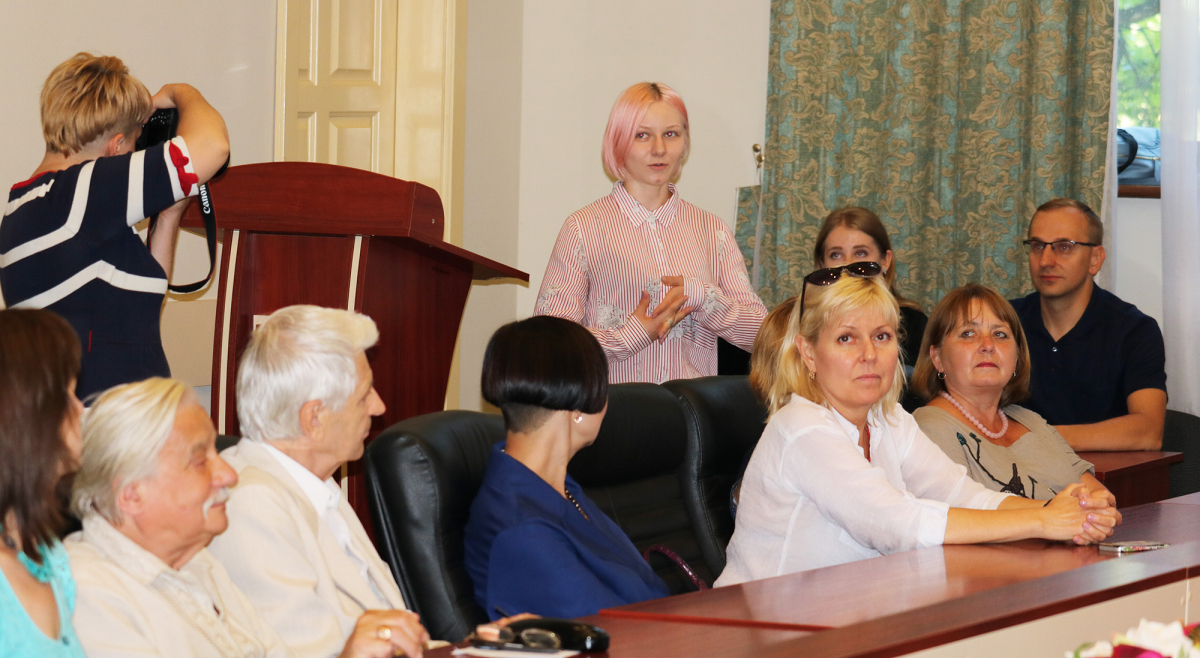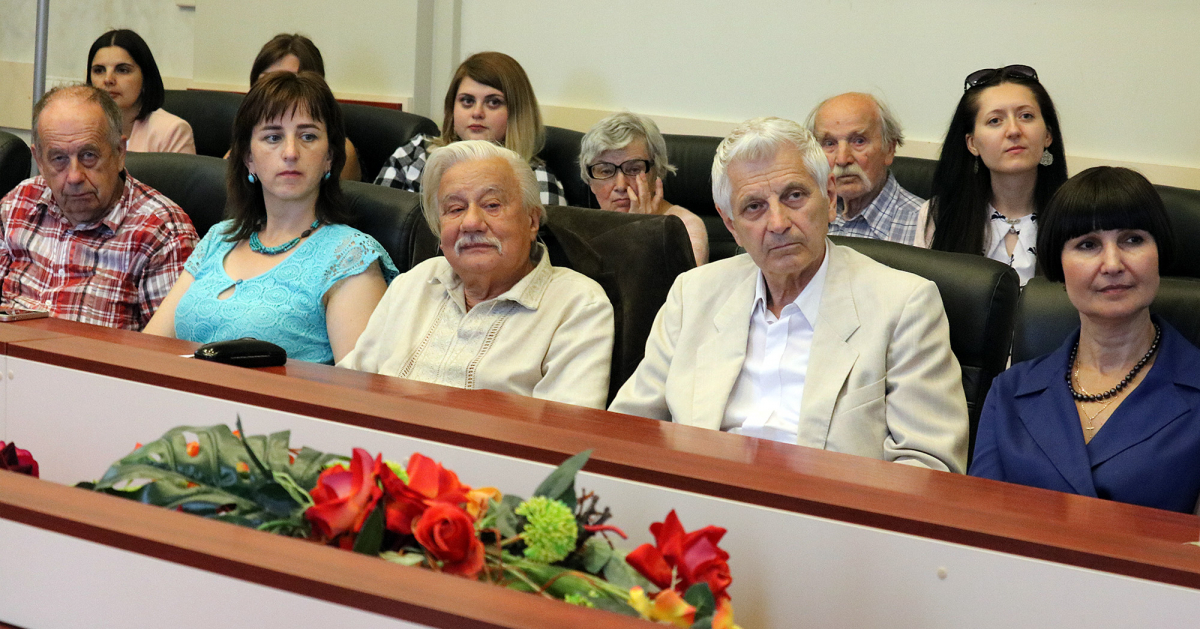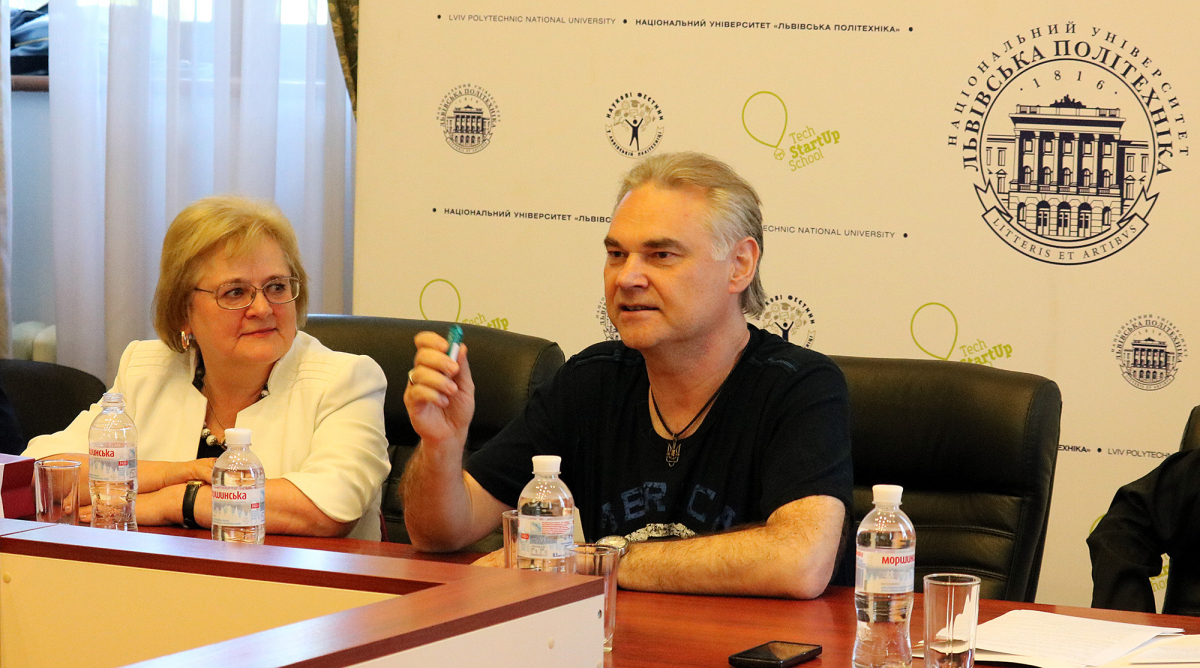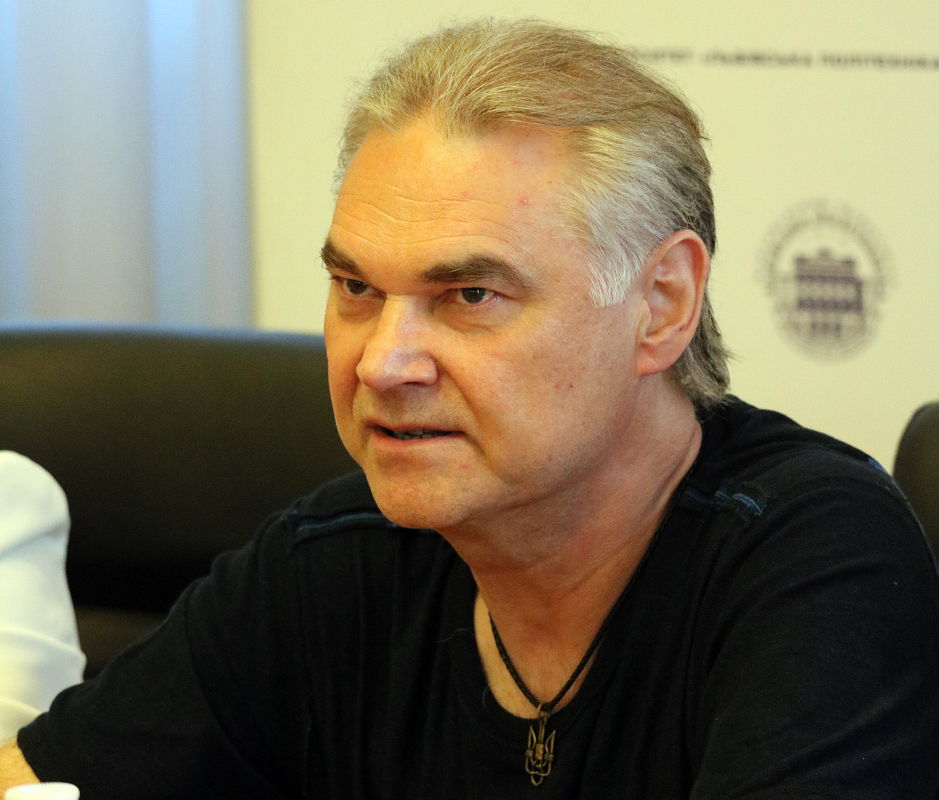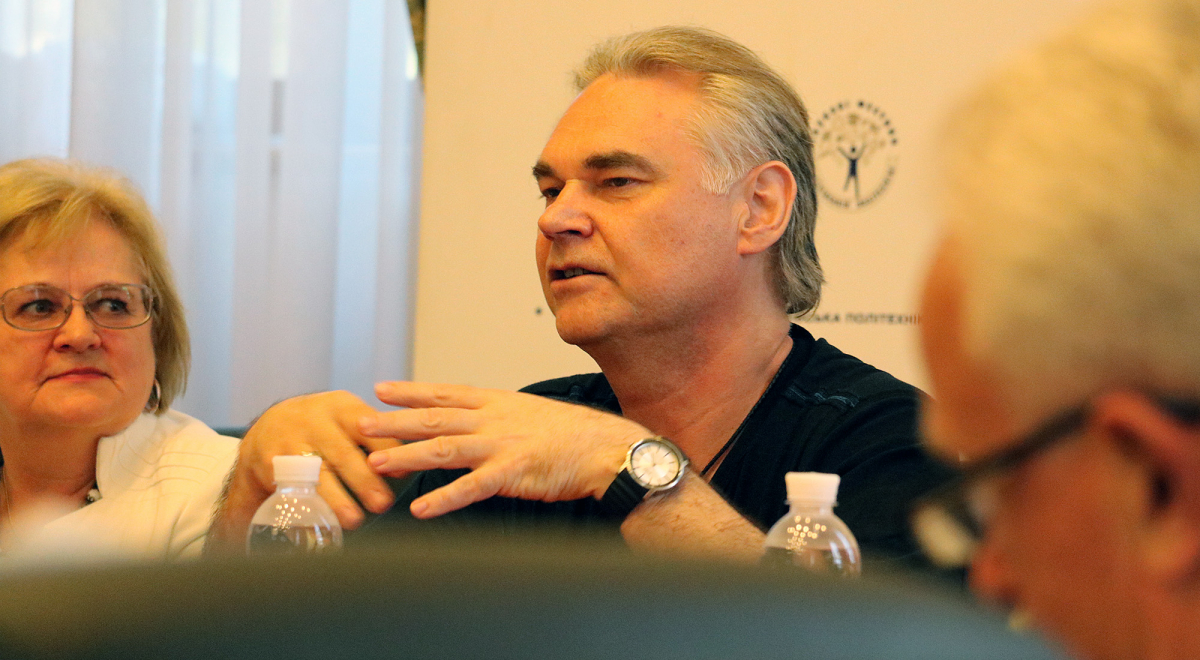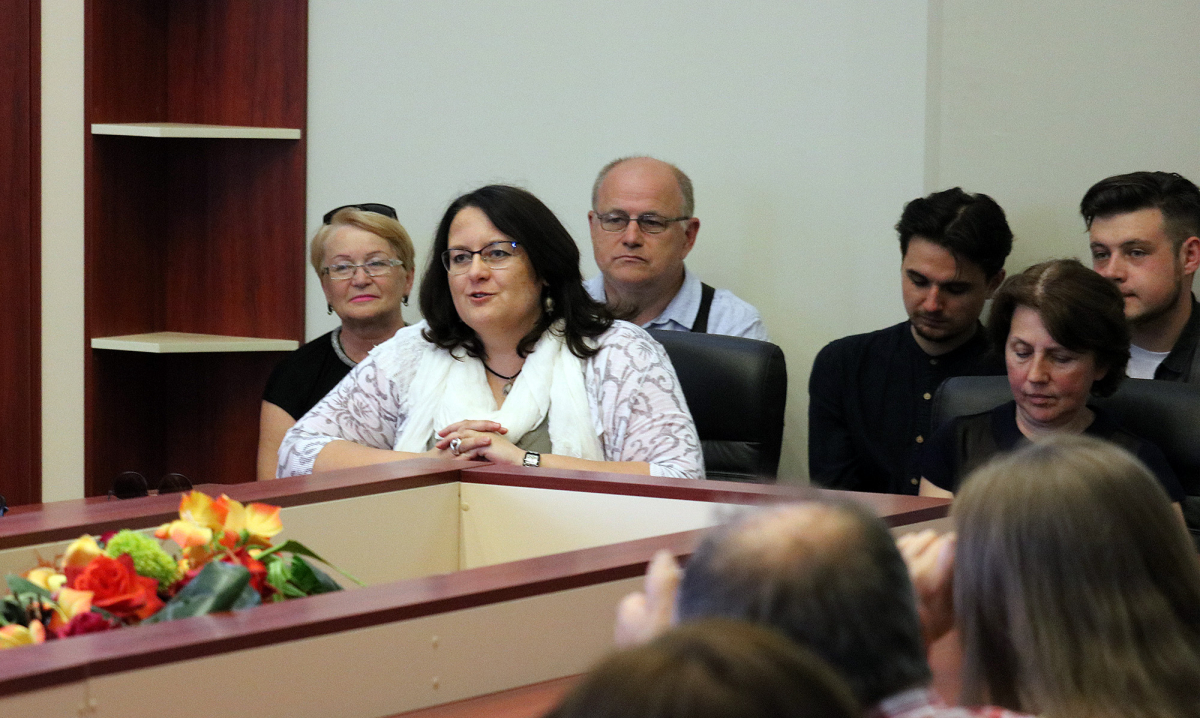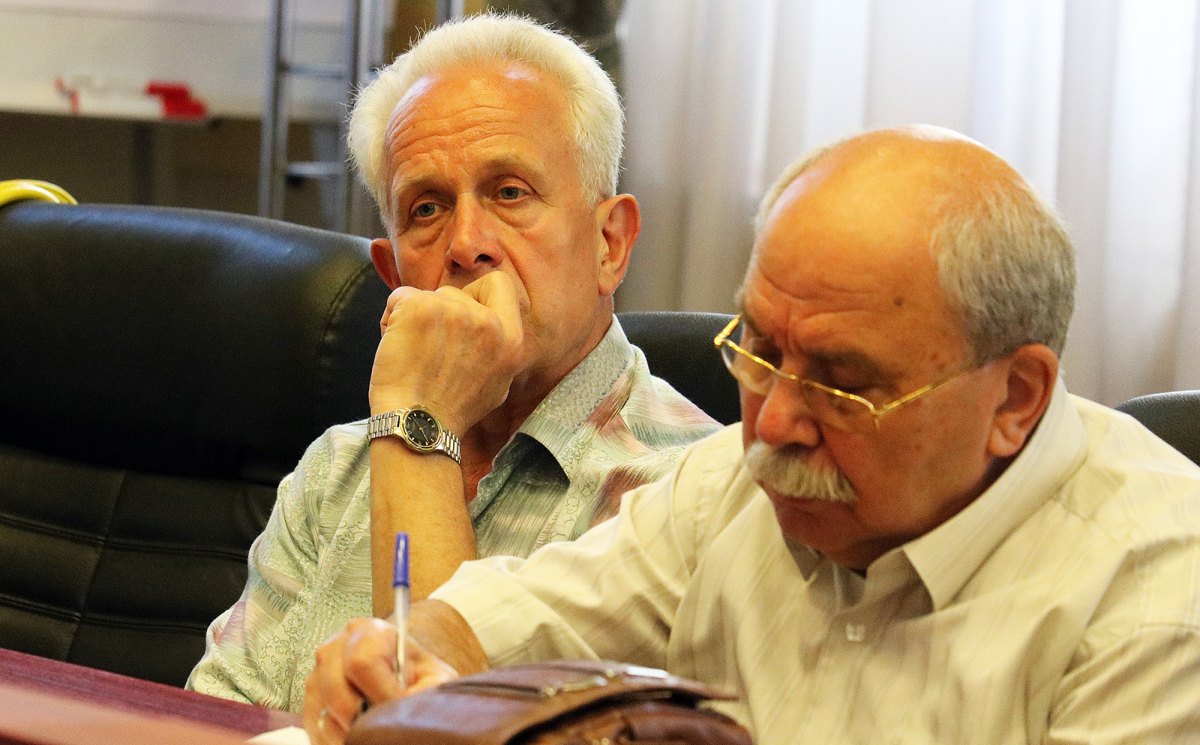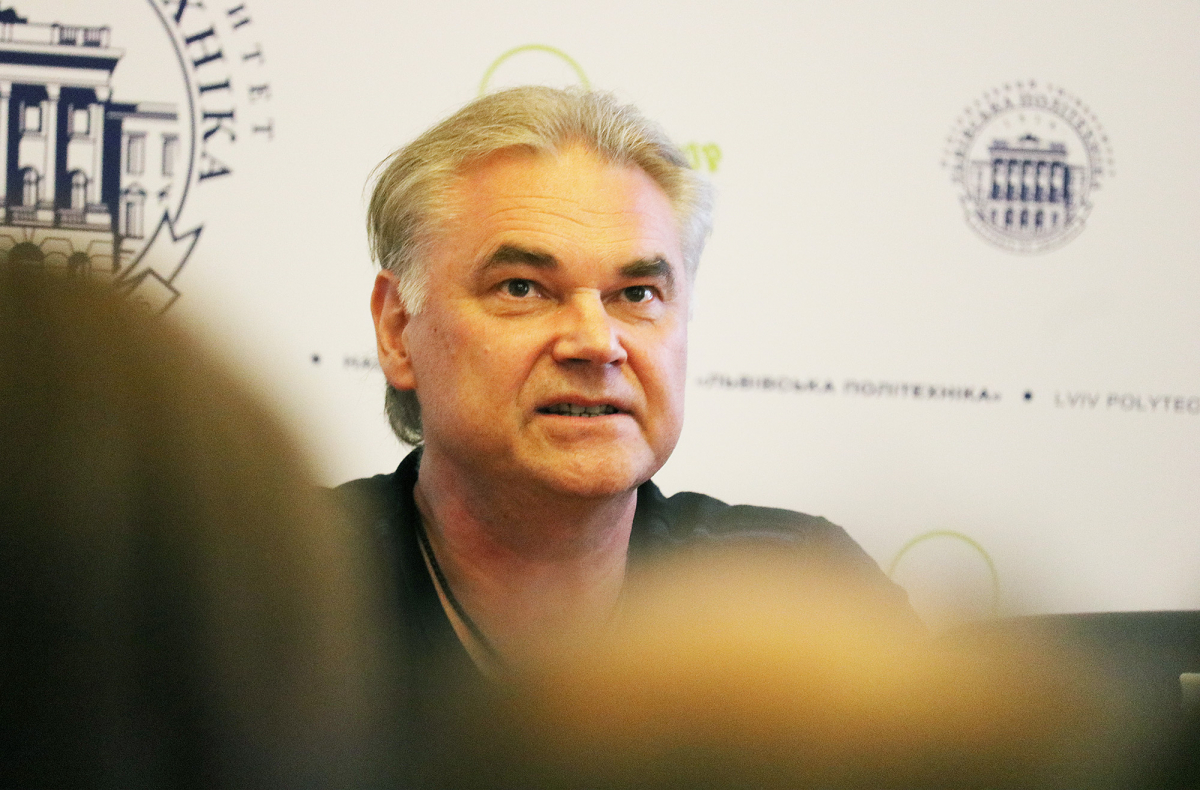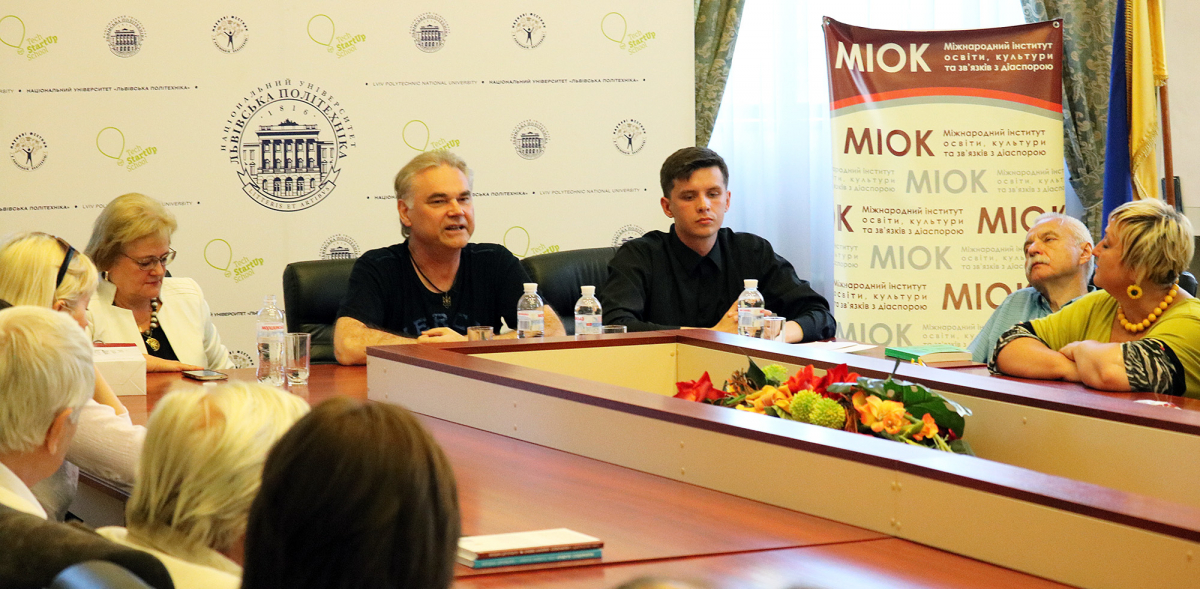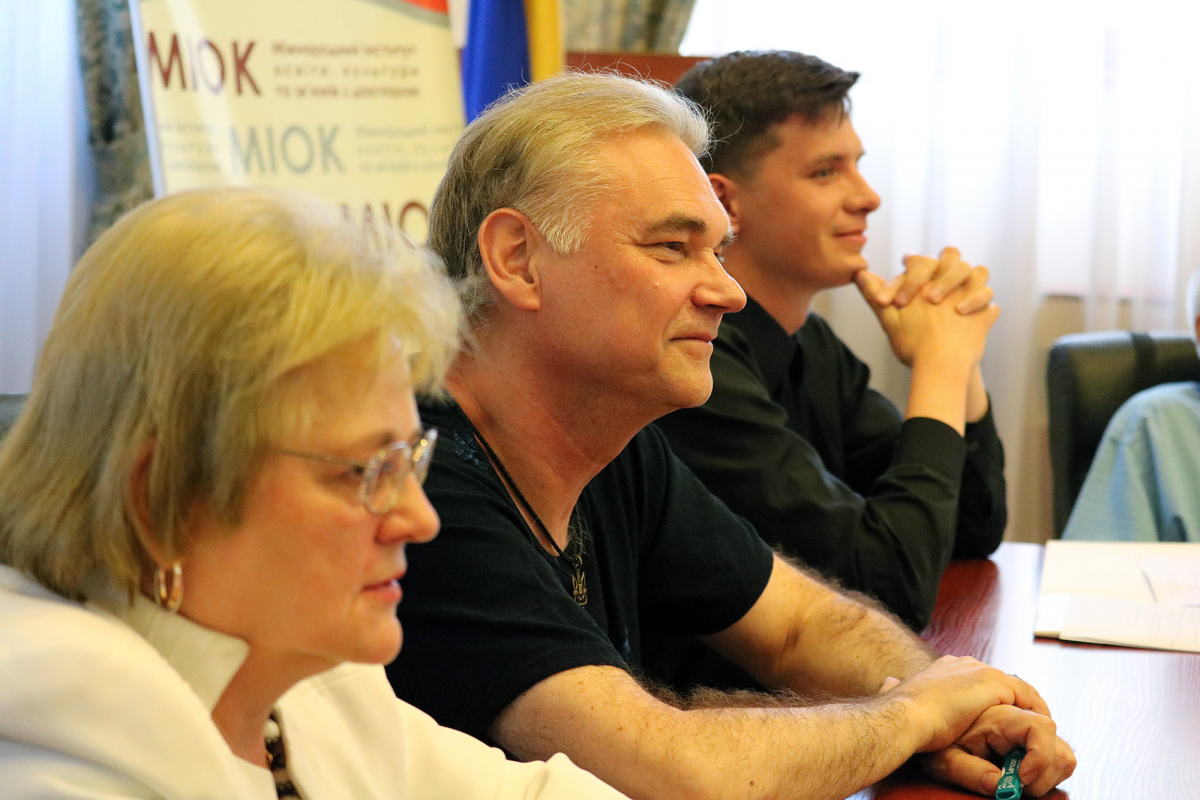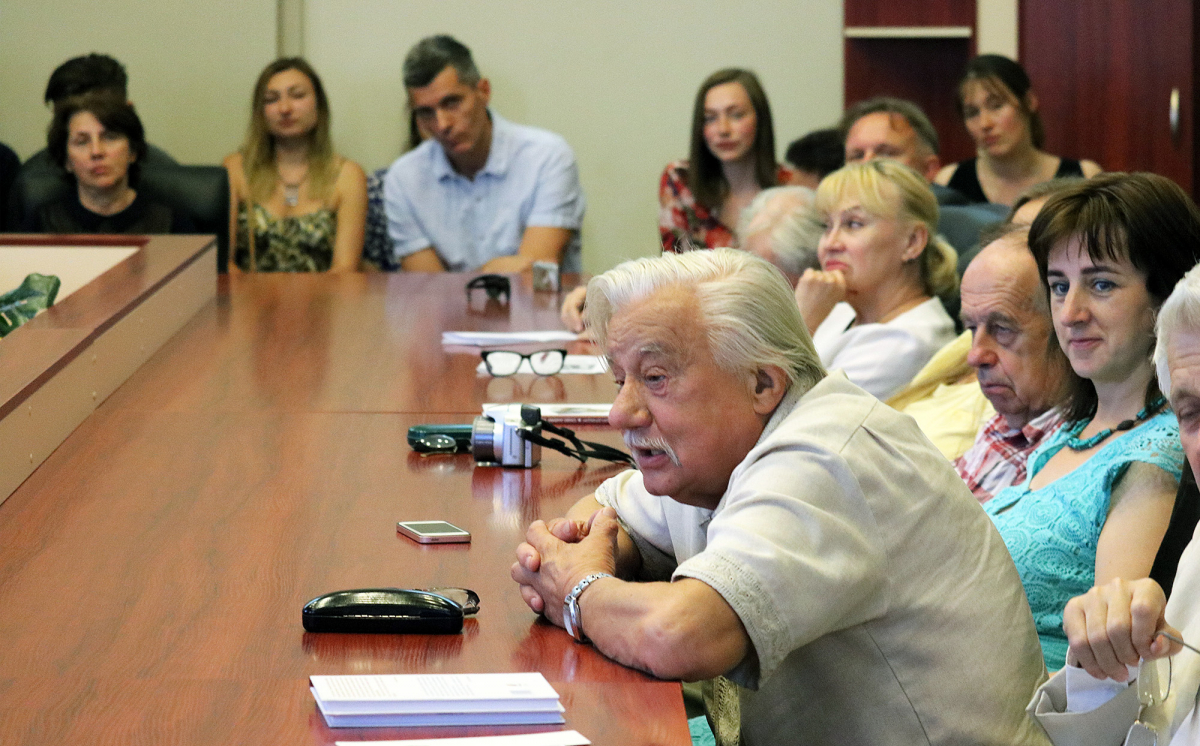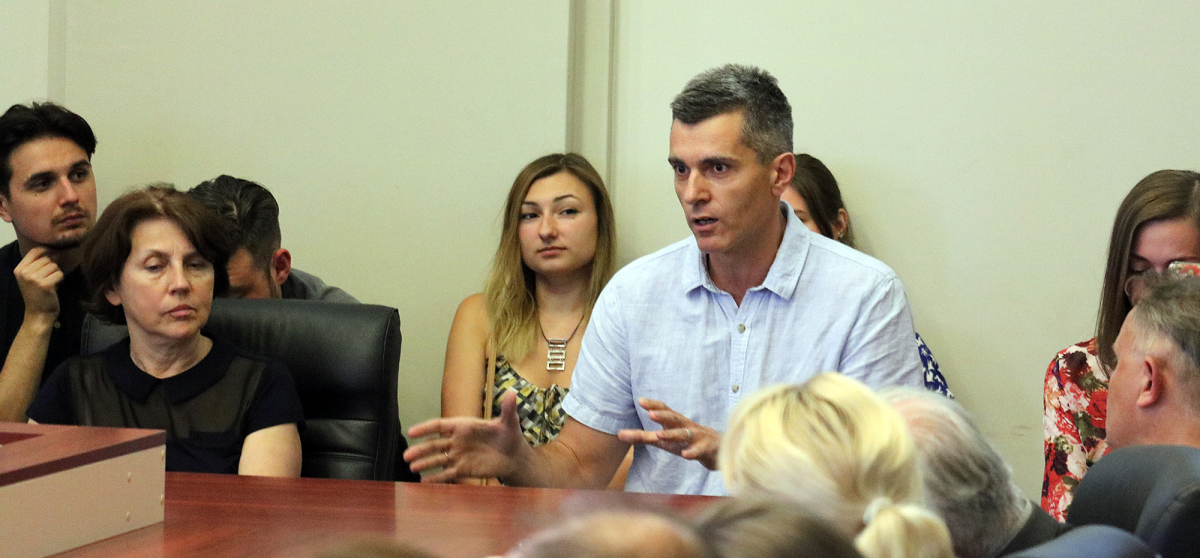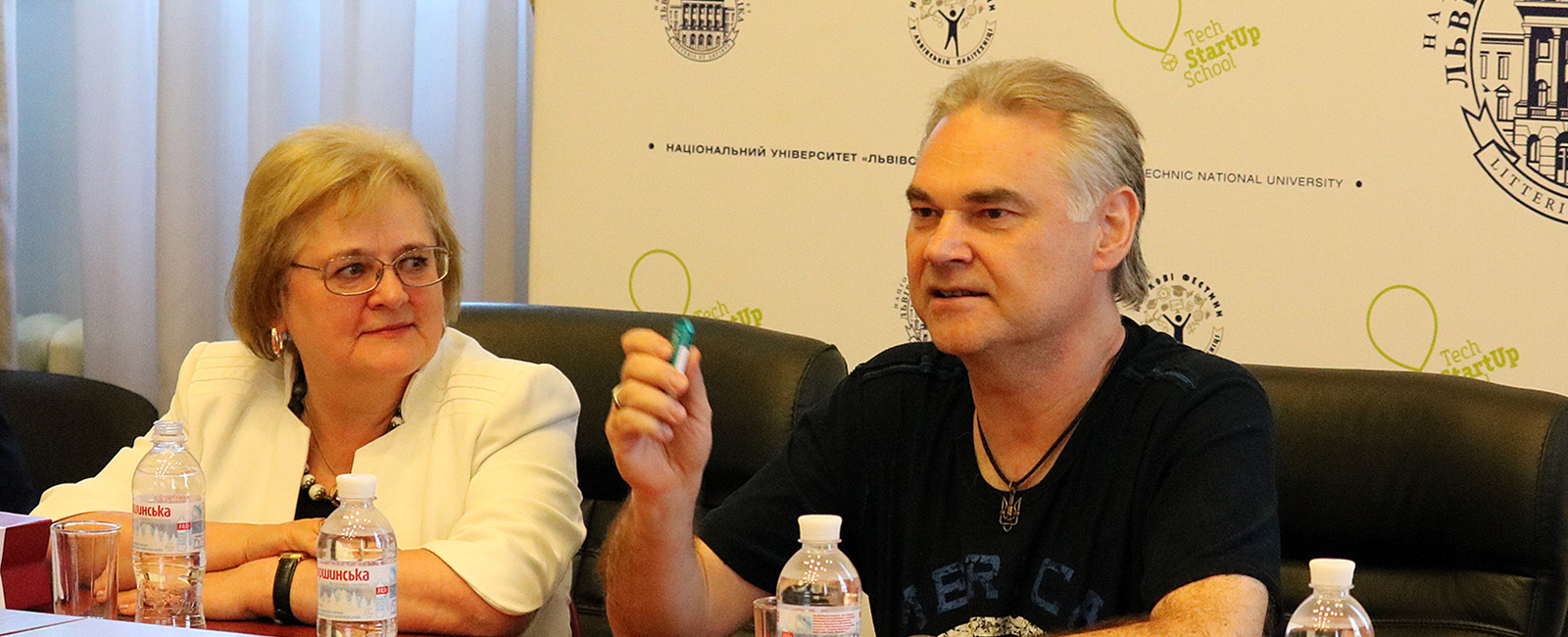Lviv Polytechnic held the meeting with Marko Robert Stech, doctor of Slavic studies, writer and literary critic. Symbolically, his first speciality was engineering. According to Stech, technical sciences, culture and humanities have the same origin
On June 7, the main building of Lviv Polytechnic National University held a meeting, organized by International Institute of Education, Culture and Diaspora Relations, with Marko Robert Stech, doctor of Slavic studies, writer, literary and cultural critic, and TV presenter. He was born in Ukraine, grew up in Poland, and since 1982 he has been living in Canada.
Before the event, the guest met the rector of Lviv Polytechnic National University, Professor Yurii Bobalo. Mr. Rector emphasized that engineers (professionals in technical specialities) without humanitarian knowledge (of national and world culture) turn into «robots» which work automatically, losing their human face. Thus, such meetings, organized by IECDR, are invaluable for future graduates. So the participants agreed to continue organizing such meetings with Polytechnic students.
The meeting opened with a 5-minute video biography of Marko Robert Stech, after which the main guest took the floor:
– I do not feel like a stranger in Polytechnic. My first speciality was engineering. Why did I choose culture and literary criticism? It seems to me that culture is the basis of everything. It is every little thing we do to streamline chaos and savagery, first of all in ourselves. It’s great when man can turn a wild forest into a garden, or in a wild meadow create a garden. And it’s even better if we are able to streamline our inner «garden» in the same way. So, everything is the aspect of culture: politics, economics, and engineering as well.
Iryna Kliuchkovska, the director of IECDR, said:
– It is important for us all to go beyond the comfort zone. There are people who create cultural products themselves. But, to my mind, meeting students is also very important. We must tell them about this way of Marko Robert Stech as a way to success ... We must show our young people, who study natural sciences, the light of culture. The result will be. Planted seed will always grow.
The meeting closed with a new release of the Eye on Culture, which was not broadcasted on TV yet.
Photos by Yosyp Marukhniak
